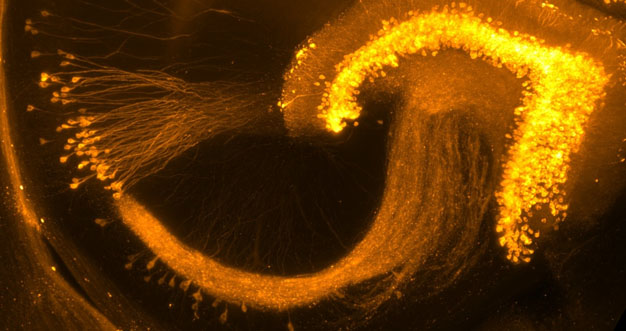News
Neural circuit basis of computation and behaviour
2020.05.29 | MITT
https://www.fens.org/Training/CAJAL-programme/CAJAL-courses-2020/NCBCB-2020/
Neural circuit basis of computation and behaviour
MOVED to 9-27 November 2020, Bordeaux School of Neuroscience, France
Applications are open
Deadline: 27 July 2020 (23:59 CEST)
Due to the recent developments of the COVID-19 crisis,
this course has been moved by one week to 9-27 November 2020.
Previous dates: 2-22 November 2020
How does the activity of neural circuits govern information processing, enable memory formation, and give rise to behaviour? Tackling these questions is one of the great challenges in current neuroscience. To make progress, quantitative studies of both structure and function of neural circuits are required, which these days have become feasible with a collection of new and broad methods. Neural circuit research bridges the molecular-cellular level to the levels of large-scale brain operation and animal behaviour and thus promises to reveal principles of spatiotemporal circuit dynamics that underlie specific brain states and behaviours. The relevance and role of specific cell types and of local as well as long-range circuit motifs need to be understood. This course aims to bring students up-to-date with the most recent developments in this exciting and fundamental field of neuroscience research. The focus will be on the advanced experimental approaches that are available today for the dissection of neural circuit connectivity and activity in various animal models (mouse, fly, zebrafish).
The Cajal course is an intensive three-week course that guides participants through the theory and practice of state-of-the-art methods for addressing pertinent questions in this field of research. This course will teach the latest technological advances in optical, electrophysiological, genetic, viral tracing, anatomical, and optogenetic approaches for the study of neural circuits. Students will learn the current state of knowledge of how neural circuits are organized, especially in the mammalian mouse brain, and how information can be processed in biological circuits through population-based activity patterns. The faculty will consist of international experts in their respective fields, discussing fundamental concepts and their own research, introducing methods relevant for neural circuit research, and providing hands-on projects. Students will perform experimental projects to apply these methods to scientific problems, they will learn how to analyse acquired data, and they will discuss strengths and limitations of the various techniques. The course is designed for PhD students, postdoctoral researchers, and early-stage group leaders, and is aimed at providing them with an enhanced tool set for addressing their current and future research questions.


